The Covid-19 pandemic has highlighted the inadequacy of our existing healthcare models in performing rapid mass testing to diagnose an active infection. There could be merit in considering smartphones as testing game changers.
Fearing a return of the coronavirus wave, the government is urging healthcare equipment manufacturers to get a simple, efficient and a mass testing diagnosis mechanism. Even better, if the testing could be repeated periodically, a detection could be done incredibly early and thus a potential spread could be contained right away.
It is a well-recognized fact that early-stage testing of potential Covid-19 carriers could play an important role in containing the pandemic’s spread. South Korea is a case in point. As of 25 April 2020, South Korea, which has a population of 51.6 million, had performed 595,161 tests, as per MOHW. It reported 10,718 positive cases and 240 deaths by the date.
By contrast, as of 25 April, according to Our World in Data, the USA had carried out 5.18 million tests at rates as high as around 200,000 tests per day. It reported 200,000 positive cases and 50,000 deaths, which are 25 times higher than in case of South Korea. The USA has a population six times that of South Korea. Quite clearly, a delayed start in testing cost the USA dearly, despite carrying out tests at breakneck speeds.
How testing works
A polymerase chain reaction (PCR) machine is at the core of testing potential carriers of infectious diseases such as Covid-19 or even SARS or MERS for that matter. A heavy-duty PCR machine such as Cobass6800 could run up to 1,400 tests at a time while the Reverse Transcription-PCR (RT-PCR) machines could take 90 samples at a time. The Indian Council of Medical Research (ICMR) has approved RT-PCR machines for many laboratories in the country.
In the USA, one of the world’s leading pharma companies, Abbott, announced that it had got emergency use authorization for its new portable Covid-19 testing device. “The new Abbott ID NOW COVID-19 test runs on Abbott’s ID NOWTM platform — a lightweight box (6.6 pounds and the size of a small toaster) that can sit in a variety of locations,” said an Abbott press release on 27 March. The release said the device delivered positive results in as little as five minutes and negative results in 13 minutes.
Bill and Milinda Gates Foundation Cofounder and Cochairman Bill Gates, in his recent blog, had discussed the possibility of even simpler and smaller testing kits. He commented, “Another type of test being developed is called a Rapid Diagnostic Test (RDT). This would be like an in-home pregnancy test. You would swab your nose the same way as for the PCR test, but instead of sending it into a processing center, you would put it in a liquid container and then pour that liquid onto a strip of paper that would change color if it detects the virus. This kind of test capability may be available in a few months. Even though it won’t be as sensitive as a PCR test, for someone who has symptoms, it should be quite accurate.”
Smartphones to take the baton
Paris-headquartered French pharmaceuticals major Sanofi has been quick enough to realize that lab-based testing approach, where swabs need to be taken and tested in a center isn’t going to be enough.
Sanofi, in a press release on 16 April, said it has signed an agreement with California-based startup Luminostics to evaluate a collaboration on a unique self-testing solution for COVID-19, using Luminostics’ innovative technology. As part of the agreement, Luminostics would contribute its proprietary technology for consumer-diagnostics for COVID-19 testing while Sanofi would bring its clinical research testing experience and capabilities. The goal is to provide a smartphone-based solution that eliminates the current need for healthcare professional administration or laboratory tests, it noted.
According to Sanofi, the diagnostic platform would be composed of the following three key components:
Luminostics notes its core innovation as “a new type of nanoparticle that is very sensitively detectable using a smartphone’s built-in camera and flash in combination with our proprietary hardware and software.” |
Rapid innovation is need of the hour
Smartphone majors, chip manufacturers, pharmaceutical companies, app developers, governments, and other stakeholders should get together to accelerate the evolution of personal testing kits. The Sanofi–Luminostics initiative is a good beginning, and there could be enough room to use smartphones for Covid-19 testing far more intuitively and accurately, if more companies start assigning R&D brains and budgets towards the target.
For vast countries such as India, where a large part of the population is located in smaller towns and villages that hardly have such testing centers nearby, a lab-based approach would simply be inadequate. However, the ubiquitous presence of smartphones holds the potential of making instant testing possible for the masses.
It could revolutionize affordable testing for a country like India, which could only complete 6,500 tests by 13 March and was able to complete 579,957 tests by 25 April. With a population of 1.3 billion, that adds up to a mere 0.045%. Also, in the 40 days that India was able to add these 573,347 tests, the number of corona-positive people have gone up to 27,109 and 872 people had lost their lives, , as per data published by Ministry of Health and Family Welfare, Government of India. Moreover, the economy has come to a literal standstill.
The situation could have been different, had a mechanism been in place for using smartphones for Covid-19 testing on a mass scale. Hundreds of million people would have gotten tested in a matter of hours and the results would have been uploaded to a central government repository. Quite probably, we would have taken the number of positive cases within three digits, if not less. Best, there would be no lockdown!
That’s where Aarogya Setu fits in neatly
Aarogya Setu has been a timely development and is comfortably placed to be a pivotal cog in the testing-and-containment wheel.
It is no coincidence that ‘setu’ is a vernacular word for ‘bridge,’ as it attempts to serve as a safety bridge for users against the spread. Once smartphone-based testing kits and apps get into play, Aarogya Setu could extend its functionality by doubling up as a big data and AI tool against Covid-19.
The app could not just recommend an affected user to go into self-quarantine but also send alerts to the concerned health authorities in the area. This could lead to very timely and targeted responses by the healthcare officers as well as the local administration.
The PCR and RT-PCR machines could still serve the purpose of further testing for more precise diagnostics before discharging a patient. However, the heavy lifting could be done by the people themselves, using their smartphones.
The smartphones-based approach would also greatly reduce the exposure risk for medical, healthcare, and police personnel. Already, a number of doctors and healthcare workers risk getting infected by coming into contact with positive but untested cases.



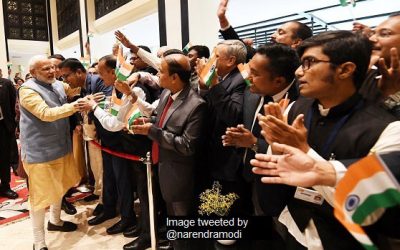
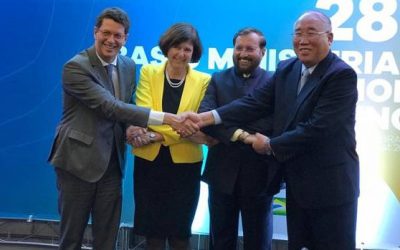
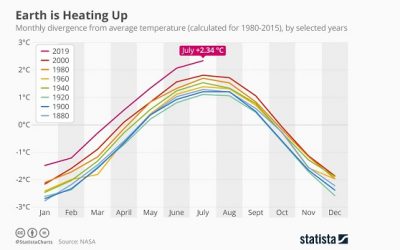

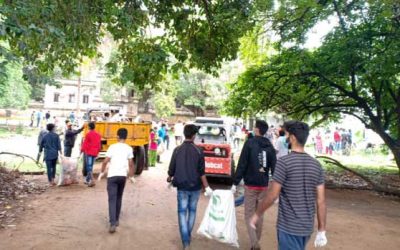
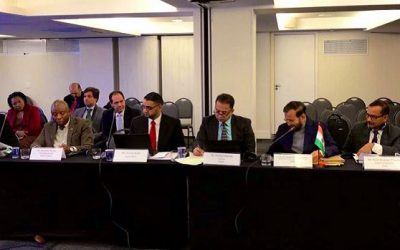

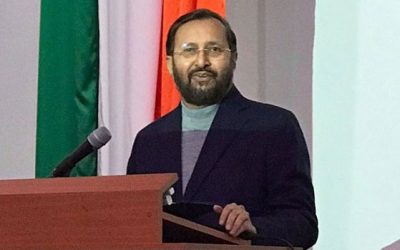
0 Comments